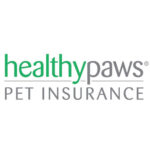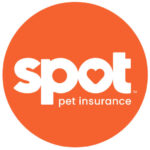Best Pet Insurance For Mastiffs In 2025
For me, Healthy Paws is the best choice for pet insurance that’s tailored specifically for Mastiff.
We’ve saved shoppers an average of $350 per year on their pet insurance.
It’s worrying to learn that 80% of pet owners are unprepared for a surprise $500 vet bill. This is where pet insurance steps in, offering a financial buffer.
In this guide, we’ll look at the top pet insurance options for Mastiff to help you find the best plan for your needs. Similar to health insurance, pet coverage enhances treatment opportunities while controlling expenses.
Best Pet Insurance Companies For Mastiffs, 2025
Different pet insurance companies specializing in Mastiff share common goals of safeguarding your pet's health and offering financial support, but they also have their own unique aspects. What suits one pet might not be ideal for another. Here are the top pet insurance choices for Mastiff:



Compare The Best Pet Insurance Companies For Mastiffs
From our examination of the best pet insurance choices for Mastiff discussed earlier, it's clear that many respected companies are competing for the leading positions. Each company also has its own unique strengths. Here's a quick summary to provide you with a look into each insurer.
| Overall Rating | Best For | Waiting Period | Reimbursement % | Benefit Limit | Get A Quote | |
|---|---|---|---|---|---|---|
| Healthy Paws |
|
Overall |
15 days accident/illness |
70%, 80%, 90% |
Unlimited annual and lifetime |
Instant Quote |
| Lemonade |
|
Cheap |
2 days accident, 14 days illness |
70%, 80%, 90% |
$5,000 to $100,000 annually |
Instant Quote |
| Many Pets |
|
Puppies |
15 days accident/illness |
70% or 80% (Most States) |
Unlimited annual and lifetime |
Instant Quote |
| Pumpkin |
|
Older Dogs |
14 days accident/illness |
90% |
$10,000, $20,000 or unlimited |
Instant Quote |
| Spot |
|
Multiple Pets |
14 days accident/illness |
70%, 80%, 90% |
$2,500 to unlimited |
Instant Quote |
Detailed Reviews Of The Best Mastiff Insurance Companies
Best Overall
Key Statistics
Why We Like Them
⇅Healthy Paws stands out as the best pet insurance choice with no limits on claim payouts, no per-incident maximums, and no restrictions. It may require a higher investment, but its value lies in avoiding difficult decisions caused by policy rules. The policy is simple, without expensive add-ons, and gives you the freedom to choose any licensed vet. Filing claims is easy through their mobile app or website, and most are resolved within two days.
Benefits & Drawbacks
⇅- Unlimited reimbursements yearly and for the duration of your life.
- Majority of claims processed swiftly within two days.
- Your satisfaction guaranteed for 30 days
- Potential to settle bills directly with vets. ✓
- No standard healthcare plan available ✘
Runner-Up For Best Overall
Key Statistics
Why We Like Them
⇅Lemonade is the most budget-conscious choice for pet insurance for Mastiff. Its coverage limits are comparable to other providers, though it doesn’t offer unlimited coverage like Healthy Paws. Lemonade’s coverage ranges from $5,000 to $100,000 annually, with premiums increasing along with the chosen limit. The standard policy covers accidents and illnesses like cancer, heart disease, skin issues, fractures, and hip dysplasia, a common condition in older Mastiff. However, preexisting conditions, dental care, behavioral issues, and elective surgeries are not covered.
Benefits & Drawbacks
⇅- Benefit from a wellness plan that's ready for use.
- Start receiving benefits just two days after an accident occurs.
- Receive a 10% discount on pet insurance when you bundle it with your Lemonade home, renters, or car insurance. ✓
- A pet telehealth service that isn't accessible around the clock.
- The vet examination fee includes an additional charge.
- Unfortunately, prescription food and microchipping are not within the policy's coverage. ✘
Best for Puppies
Key Statistics
Why We Like Them
⇅ManyPets delivers top-tier puppy insurance. Pre-existing conditions won’t affect rates, and cured issues may become eligible after 18 months. Unrelated conditions also qualify for coverage. Like all young dogs, Mastiff puppies are prone to illnesses such as poisoning, swallowing foreign objects, and accidents due to their playful nature. Early coverage can help you avoid exclusions related to pre-existing conditions as they get older.
Benefits & Drawbacks
⇅- Accessible in 40 or more states.
- Allows for optional wellness programs.
- Covers vet examination costs for both sickness and accident visits. ✓
- There's no around-the-clock telehealth service for pets.
- The policy does not extend to pet behavioral treatments.
- Sadly, alternative treatments aren't within the scope of coverage. ✘
Best For Older Dogs
Key Statistics
Why We Like Them
⇅As Mastiff age, they often face genetic health issues like cruciate ligament problems and hip dysplasia, which can be expensive to treat. Pumpkin covers these conditions without a waiting period and also includes vet exam fees for senior Mastiff. They offer a range of coverage plans for surgeries, dental issues, and more. You can choose from three deductible levels, and Pumpkin usually reimburses 90% of your vet bills.
Benefits & Drawbacks
⇅- Choose to participate in an accessible wellness plan.
- Gain from discounted rates when insuring multiple pets.
- Receive a substantial 90% rebate for dogs and cats from 8 weeks of age. ✓
- Unfortunately, a 24/7 pet telehealth line is not available.
- The options available do not feature an accident-only plan, unfortunately. ✘
Best For Multiple Pets
Key Statistics
Why We Like Them
⇅Mastiff are known for their friendly nature, which often leads owners to have multiple pets. Spot accommodates this by offering a 10% discount for insuring more than one pet, resulting in great savings. Their preventive care plan includes wellness services such as vet visits, fecal tests, and teeth cleanings, with some vaccines included. Spot also has a 30-day money-back guarantee if the service doesn’t meet your expectations, up to 90% reimbursement on eligible vet bills, and a 24/7 vet helpline. You can use any licensed vet in the U.S.
Benefits & Drawbacks
⇅- Encompasses microchip integration services
- Allows for a modest $100 deductible.
- Features a pet telehealth line open 24 hours a day, 7 days a week. ✓
- Accidents have a 14-day waiting period, in contrast to the 2-day period with some major competitors. ✘
Average Cost Of Pet Insurance For Mastiffs
| Company | Deductible | Annual Reimbursement % | Monthly Price | Age Of Dog |
| Healthy Paws | $500 | 70% | $70 | 5 year old |
| Lemonade | $500 | 70% | $40 | 5 year old |
| Spot | $500 | 70% | $73 | 5 year old |
| Healthy Paws | $500 | 80% | $37 | 1 year old |
| Lemonade | $500 | 80% | $21 | 1 year old |
| Spot | $500 | 80% | $54 | 1 year old |
| Healthy Paws | $500 | 70% | $38 | 3 month old |
| Lemonade | $500 | 70% | $29 | 3 month old |
| Spot | $500 | 70% | $83 | 3 month old |
Average Cost Of Typical Vet Procedures
| Typical Vet Procedure | Average Cost Of Procedure |
| Puppy vaccinations | $75-100 |
| Flea & tick prevention | $40-200 |
| Heartworm prevention | $24-120 |
| Spay or neuter surgery | $200-800 |
| Annual exam | $240-600 |
| Teeth cleaning | $200-500 |
| Microchip | $40 |
Common Health Issues For Mastiffs
Among purebred dogs, Mastiff are particularly susceptible to genetic health issues. In some cases, breeders may have overlooked these genetic concerns, contributing to widespread health challenges in the Mastiff breed. Compared to other breeds, Mastiff are more likely to suffer from genetic conditions. Common health issues include:
- Cancer (Oral Melanoma, Mast Cell Tumors)
- Brachycephalic Obstructive Airway Syndrome (BOAS)
- Patellar Luxation
- Hip Dysplasia, Legg-Calvé-Perthes Disease
- Corneal Ulcers, Entropion, Dry Eye
- Skin Fold Dermatitis, Infections
Average Cost Of Emergency Vet Procedures
| Emergency Pet Procedure | Average Cost Of Procedure |
| General consultation/exam | $100-$150 |
| General bloodwork | $80-200 |
| X-rays | $150-$250 |
| Ultrasound | $300-$600 |
| 1-2 day hospitalization | $600-$1,700 |
| 3-5 day hospitalization | $1,500-$3,500 |
| Wound treatment & repair | $800-$1,500 |
| Emergency surgery | $800-$2,500 |
| Oxygen therapy | $500 |
Is Pet Insurance Worth It For Mastiffs?
Pet insurance protects against unexpected veterinary costs. While many pet owners can manage their pet’s medical bills, a significant portion of Americans struggle with a $1,500 emergency charge. The right pet insurance provides a safety net, enabling you to prioritize your furry friend’s health over financial constraints. The value of pet insurance is often determined by your expectations.
If your pet has a chronic condition and you’re looking for help with treatment costs, you might find yourself disappointed since no companies in our review cover pre-existing conditions. However, if you understand your policy and its coverage scope and ensure it aligns with your financial situation, you’re likely to see it as a worthwhile investment.
How To Find The Best Pet Insurance Company For You
Pet insurance plans vary widely in terms of costs and options, which can make it hard to choose the most appropriate one. To find the best plan for your pet, keep these considerations in mind before making your final decision:
Check Whether Your Pet Is Eligible
Generally, young puppies and kittens must be at least 6 to 10 weeks old to qualify for insurance, depending on the company. Some providers may limit initial enrollment for senior pets or restrict coverage to accidents only. Once your pet is insured, most plans ensure lifelong coverage as long as you keep up with premium payments.
Research What’s Covered
Typically, pet insurance plans cover surgery, hospitalization, and medication expenses for sick or injured pets. However, some companies may charge extra for certain services or not cover them at all. Here are a few examples:
- Exam fees: If your dog breaks a leg, some plans might pay for X-rays, surgery, and pain relief but may not cover the veterinarian’s examination fee.
- Alternative treatments and rehab: Some plans include coverage for alternative treatments, such as acupuncture and physical therapy, while others might require an additional fee.
- Behavioral therapies: Not all plans provide coverage for treatment of behavioral problems, such as aggression.
- Prescription food: Certain plans may not cover food or supplements prescribed by a vet for a covered issue.
- Dental care: Pet insurance varies in dental coverage. Some may not cover issues like gum disease or tooth problems, while others might depend on recent dental cleanings. Some wellness add-ons may help cover cleanings. Also, remember that pet insurance typically does not cover pre-existing conditions, cosmetic procedures, or breeding costs.
Decide How Much Coverage You Want
While the majority of pet insurance plans include a cap on annual payouts, some provide unlimited coverage. It’s up to you to determine the amount that allows you to feel secure about potential vet costs. If your dog or cat is in good health, you might go for years with minimal expenses beyond routine checkups. However, unanticipated surgeries or serious illnesses can result in veterinary bills that run into the thousands.
Understand Reimbursements And Deductibles
In the pet insurance field, most plans offer to reimburse a portion of your veterinary costs. When you sign up, you can typically choose a reimbursement level, like 70%, 80%, or 90%. However, some plans set a specific amount for certain treatments, which might be less than your vet’s fees, meaning you’ll have to cover the difference.
Almost all plans also require a deductible, which is the upfront cost you pay before your insurance kicks in. You can often select different deductible amounts, such as $100 or $250. Some plans require a separate deductible for each health issue, while most only need it once a year.
In general, if you opt for a lower deductible with higher reimbursement, you’ll pay higher premiums, whereas a higher deductible with lower reimbursement will result in lower premiums.
Check Waiting Periods
Insurance plans typically include a short waiting period after purchase, typically around 14 days, before providing comprehensive coverage for accidents and illnesses. During this time, treatments are not covered. Longer waiting periods may apply to specific conditions such as cruciate ligament injuries, which affect a dog’s knee stability and movement.
Examine Extra Costs
A few pet insurance firms provide coverage for regular services such as check-ups and vaccinations. While this may sound appealing, it’s important to evaluate if the additional cost is justified. Compare the yearly cost of the wellness insurance plan to your typical annual expenditure on these services. Make sure to review the specifics carefully, as definitions of “wellness” can differ among pet insurance providers.
Compare Quotes
Pet insurance costs are determined by the provider and the level of coverage offered. Certain insurers offer discounts for insuring multiple pets, which could save you money. However, discounts alone don’t guarantee the best choice. To find the most suitable pet insurance, it’s important to delve into the details and collect quotes from various plans. Make sure you compare them objectively, taking into account coverage levels, deductibles, and reimbursement limits.
Factors That Impact Cost Of Your Pet Insurance Policy
Just as with human health insurance, pet insurance costs can vary due to several factors, including:
- Location: Insurers take local veterinary care prices into account when determining your policy’s premium.
- Pet’s Age: Older pets tend to have more health issues, leading to increased premiums.
- Pet’s Breed: Certain breeds are more susceptible to health problems. For example, bulldogs and Boston terriers commonly experience respiratory issues, while larger breeds like Pugs have a higher chance of developing hip dysplasia. These breed-related concerns can impact your insurance costs.
- Deductibles, Coinsurance, and Coverage Limits: If you prefer to pay less out-of-pocket for your pet’s care, your insurance premiums will be higher. For instance, if you choose a $100 deductible rather than a $500 one, you’ll receive quicker reimbursements, but your premiums will increase.
Our Methodology
The assessments and ratings were developed through a process of reviewing insurer websites, analyzing customer feedback, consulting other review platforms, and drawing from personal experiences with pet insurance.
Quotes Analyzed
Years Of Industry Experience
Brands Reviewed
Research Hours
FAQs
Is pet insurance cheaper for purebred dogs?
The propensity of purebred dogs to suffer from genetic vulnerabilities and costly health issues results in higher insurance premiums compared to mixed-breed dogs.
What is the average cost of owning a Mastiff?
During the initial year, expenses total around $3,000, encompassing vaccinations, food, grooming, and insurance. However, subsequent annual costs decrease to about $1,900.
What insurance do you need for a dog?
Dog owners should think about getting pet insurance to cover the costs of veterinary care and maintain their dogs’ well-being.
Sources
⇅